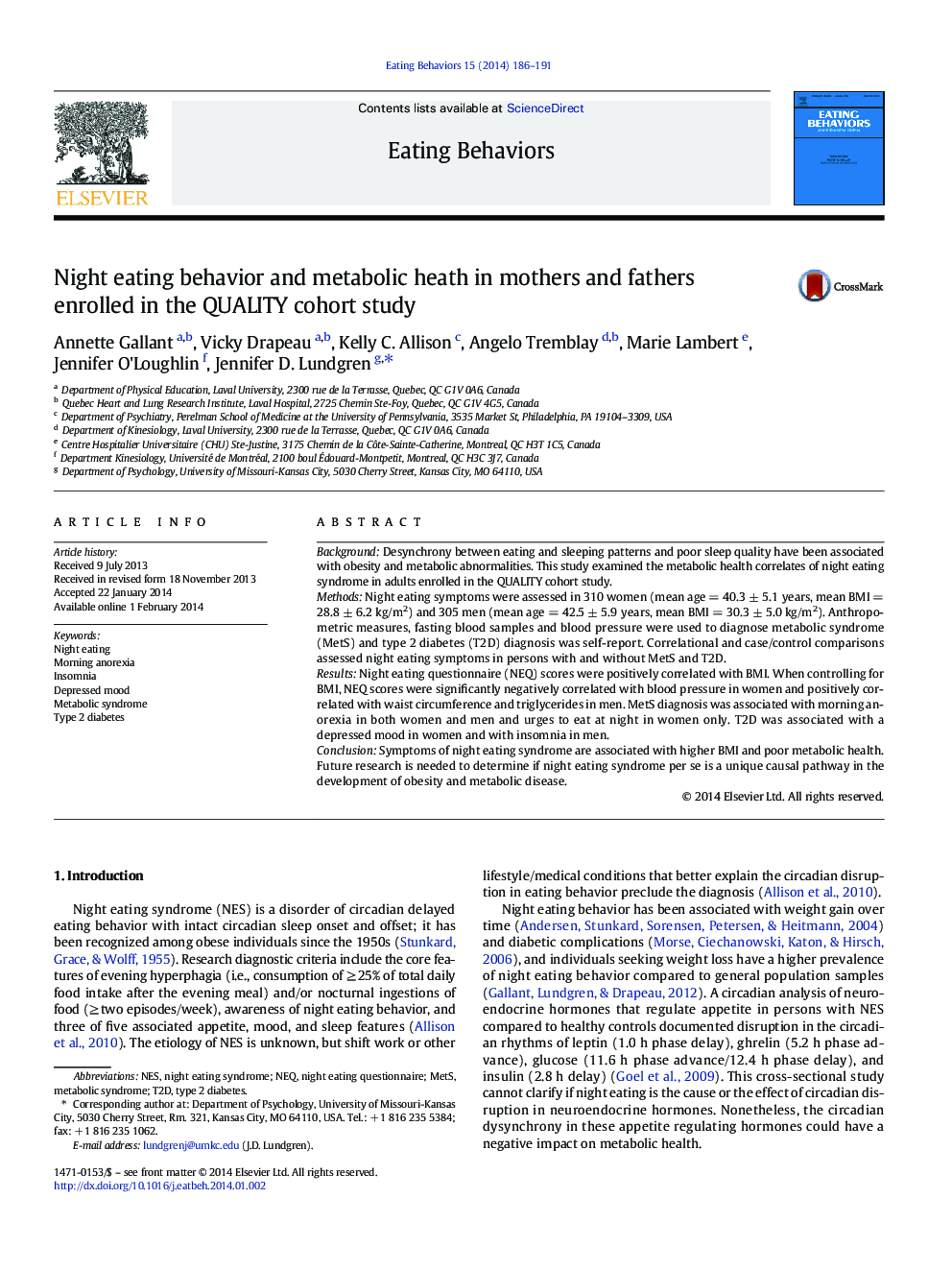| Article ID | Journal | Published Year | Pages | File Type |
|---|---|---|---|---|
| 906478 | Eating Behaviors | 2014 | 6 Pages |
•Night eating symptom severity is positively correlated with BMI.•Metabolic syndrome is associated with morning anorexia in men and women.•Type 2 diabetes is associated with insomnia in men and depressed mood in women.
BackgroundDesynchrony between eating and sleeping patterns and poor sleep quality have been associated with obesity and metabolic abnormalities. This study examined the metabolic health correlates of night eating syndrome in adults enrolled in the QUALITY cohort study.MethodsNight eating symptoms were assessed in 310 women (mean age = 40.3 ± 5.1 years, mean BMI = 28.8 ± 6.2 kg/m2) and 305 men (mean age = 42.5 ± 5.9 years, mean BMI = 30.3 ± 5.0 kg/m2). Anthropometric measures, fasting blood samples and blood pressure were used to diagnose metabolic syndrome (MetS) and type 2 diabetes (T2D) diagnosis was self-report. Correlational and case/control comparisons assessed night eating symptoms in persons with and without MetS and T2D.ResultsNight eating questionnaire (NEQ) scores were positively correlated with BMI. When controlling for BMI, NEQ scores were significantly negatively correlated with blood pressure in women and positively correlated with waist circumference and triglycerides in men. MetS diagnosis was associated with morning anorexia in both women and men and urges to eat at night in women only. T2D was associated with a depressed mood in women and with insomnia in men.ConclusionSymptoms of night eating syndrome are associated with higher BMI and poor metabolic health. Future research is needed to determine if night eating syndrome per se is a unique causal pathway in the development of obesity and metabolic disease.
